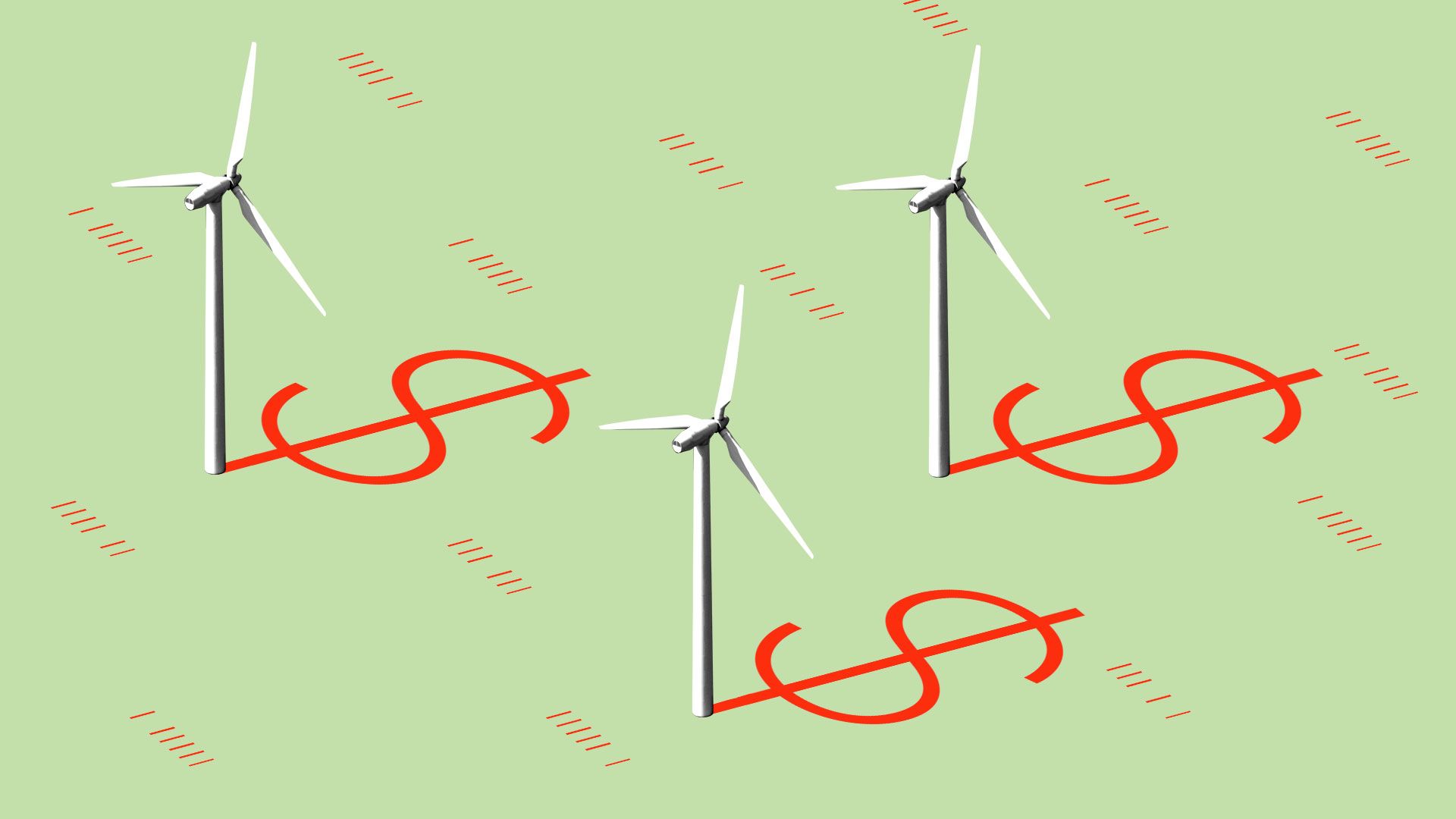How blockchain falls short for energy transactions
Add Axios as your preferred source to
see more of our stories on Google.

Illustration: Lazaro Gamio/Axios
More sophisticated energy systems will be needed for the diversified, intelligent electric grids of the future, but blockchain technology — one widely promoted solution — may require a long list of difficult tradeoffs.
Why it matters: The power sector is becoming more distributed and decarbonized, with increasing amounts of intermittent renewables, energy storage and other smart technologies deployed across the grid. If new energy markets can't make a symphony of these varied assets, the result could be a dysfunctional cacophony.
Where it stands: Blockchain — the distributed ledger technology best known as the backbone of cryptocurrencies like Bitcoin — has been proposed as a promising platform for these energy markets.
- It solves a challenging problem: enabling mistrusting parties to transact with one another securely without trusting — or paying — a central authority.
Yes, but: Blockchain relies on massive duplication of data storage and processing (owing to its consensus process), which could prove prohibitive given the volume of data and computation required for energy market processes and transactions. All that duplication slows down the network and makes inefficient use of its resources.
Between the lines: Beyond the technical challenges, blockchain poses practical and legal risks.
- The ledger's immutability leaves it vulnerable to faulty and malicious transactions as well as defective smart contracts — problems that, even if infrequent, could have dire effects in the critical power sector.
- Blockchain’s reliance on economic incentives for ledger validators leaves the power system exposed to malicious actors whose goal is disruption, not economic gain.
- At a more basic level, blockchain's decentralization is misaligned with the statutory authority of state regulators and the utilities they franchise. And its inherent transparency is at odds with the confidentiality and sensitivity of financial and power system data — particularly dangerous in an era of international cyberattacks.
The other side: Selective use of blockchain could mitigate some concerns, such as quickly and efficiently processing certain transactions "off-chain" and recording only the most important data on blockchains.
- Blockchain's signature strength — disintermediation of a central authority — could also be valuable in applications like asset registration, payment systems and managing carbon and clean energy credits.
The bottom line: Many of these most serious tradeoffs are structural and intrinsic to blockchains. Power market regulators will place higher premiums on platforms that are cost-effective, high-performing and private than on those that disintermediate providers — making current blockchain technology an unlikely choice.
David Livingston is deputy director for climate and advanced energy at the Atlantic Council Global Energy Center. Ben Hertz-Shargel is vice president of advanced grid services and analytics at EnergyHub.
Go deeper: Read the Atlantic Council report on blockchain and the power grid.

